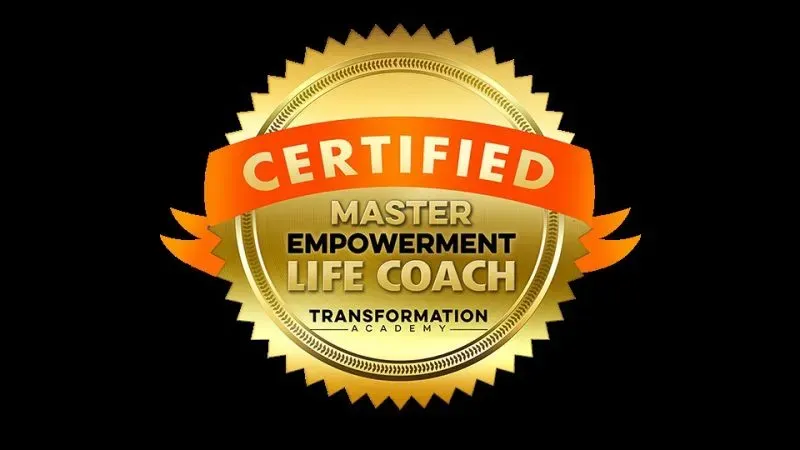Important Questions to Ask Your Transformation Coach
by Christina Blanchard-Horan, PhD

Navigating Transformation: 10 Vital Questions to Ask Your Prospective Coach
Introduction
Embarking on a journey of personal transformation is a profound step towards growth and self-discovery. A transformation coach can be your guiding light in this process, helping you overcome obstacles, unlock potential, and navigate the complexities of change. But, before you dive into a coaching relationship, it’s essential to ensure that your chosen coach is the right fit for your needs and goals. In this article, we’ll explore the top 10 most important questions questions to ask a transformation coach you are considering, why these questions matter, and the type of answers you should be seeking to find the perfect coach for your journey.
Discover related topics

Question 1: What is your coaching approach and philosophy?
Why It’s Important: This question provides insight into the coach’s methods and principles. It helps you determine whether their approach resonates with your values and goals, setting the foundation for a successful coaching relationship.
Desirable Answer: Look for a coach who aligns their approach with your vision. They should emphasize empowerment, growth, and take a holistic view of personal development. For example, I always include the 12 aspects of life in my assessments. Including areas of life such as personal growth (self, pleasure, travel), to survival methods (money, labor, career), to relationships (siblings, partnership, friends), to the existential (ancestry, loss and self-undoing).
Question 2: What is your coaching experience and background?
Why It’s Important: Understanding the coach’s experience ensures they have the knowledge and expertise to guide you effectively through your transformation journey.
Desirable Answer: Seek coaches with relevant certifications, training, and a track record of helping clients achieve meaningful results. For example, my training is in transformation coaching focused on the psychology of change, mindfulness, and finding motivation.
Question 3: How do you customize your coaching for individual clients?
Why It’s Important: Personalization is key in coaching. The answer to this question showcases the coach’s ability to tailor their methods to your unique needs.
Desirable Answer: A coach should emphasize their commitment to crafting personalized strategies that align with your goals and circumstances.

Question 4: Can you share success stories from past clients?
Why It’s Important: Past successes can indicate a coach’s ability to deliver tangible results.
Desirable Answer: Look for coaches who can provide specific examples of how they’ve helped clients achieve their goals and overcome challenges.
Question 5: How do you help clients overcome obstacles and setbacks?
Why It’s Important: Life is full of challenges; understanding the coach’s approach to overcoming them demonstrates their supportiveness.
Desirable Answer: Look for a coach who emphasizes resilience-building and offers strategies for navigating setbacks effectively.
Question 6: What is the expected duration and frequency of coaching sessions?
Why It’s Important: Knowing the time commitment helps you plan your schedule and assess if it aligns with your availability.
Desirable Answer: A coach should provide a clear outline of the coaching schedule and explain how session frequency contributes to your progress.

Question 7: How do you measure progress and track goals?
Why It’s Important: A coach’s approach to tracking progress ensures your growth is measurable and tangible.
Desirable Answer: Look for coaches who discuss setting specific goals, regular check-ins, and providing tools for self-assessment.
Christina Blanchard-Horan, PhD
is the Mystic Transformation Coach
Helping you make the changes you want in your life.
Question 8: How do you ensure confidentiality and trust in the coaching relationship?
Why It’s Important: Trust and confidentiality are crucial for open and honest coaching conversations.
Desirable Answer: A coach should prioritize creating a safe space for you to share without fear of judgment and assure confidentiality.
Question 9: What is your philosophy on accountability in coaching?
Why It’s Important: Accountability helps you stay on track; a coach’s stance on this indicates their level of involvement.
Desirable Answer: A coach should stress the importance of holding you accountable while acknowledging your autonomy in the process.
Question 10: How do you adapt your coaching to changing circumstances or shifts in goals?
Why It’s Important: Life is dynamic, and your coaching journey may need adjustments; this question gauges the coach’s flexibility.
Desirable Answer: A coach should express a willingness to adapt strategies when circumstances change and goals evolve.

Conclusion
Choosing a transformation coach is a pivotal decision that can significantly impact your personal growth journey. The top 10 questions listed above serve as a comprehensive guide to ensuring you make an informed choice. When seeking a coach, you want answers that reflect a coach’s commitment to personalized growth, their experience and qualifications, and their adaptable and supportive approach. By asking these questions and assessing the responses, you’re taking proactive steps towards finding a coach who can empower you to unlock your true potential and embark on a transformative journey of self-discovery.
Action-based questions during transformational coaching conversation:
- What is the first step that can help you move towards your goal?
- What do you have to let go of to move towards your goal?
- Who should you hang out with so that achieving this goal seems a natural progression?













